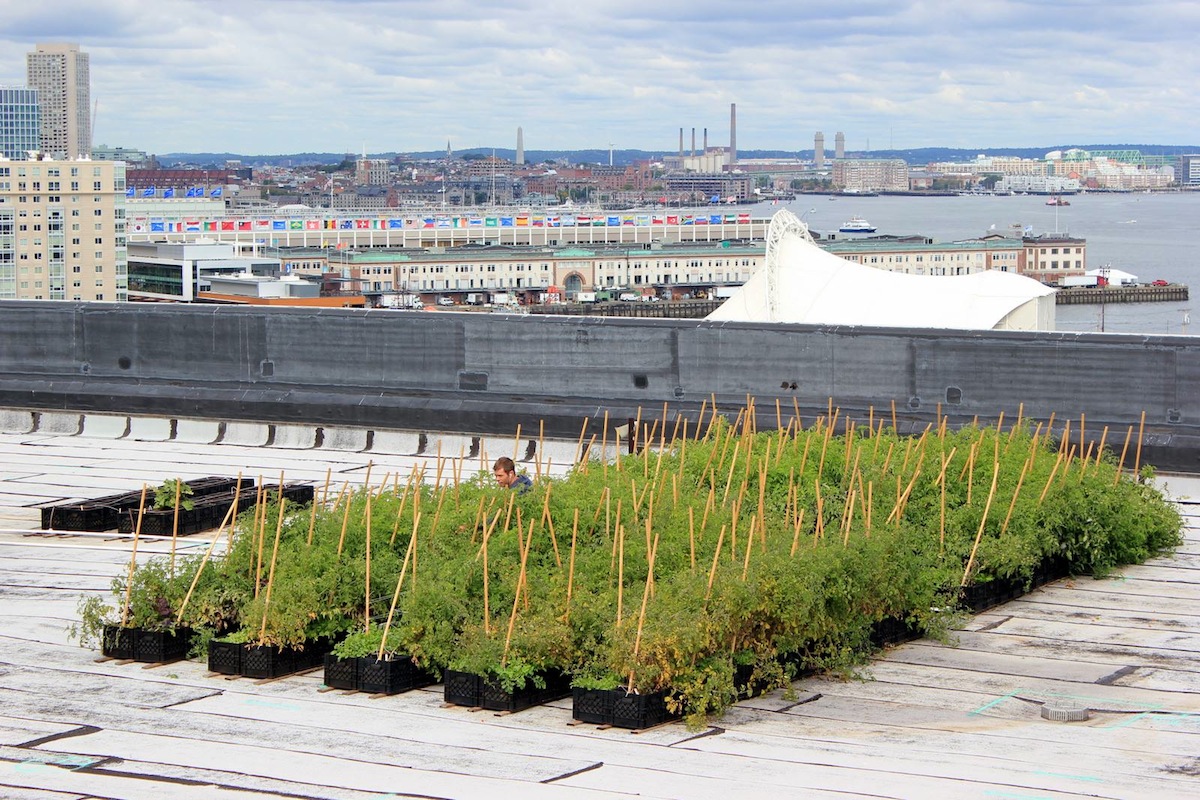Is the MBTA Rooting Itself Into the Rooftop Gardening Business?
Boston’s own rooftop farm, Higher Ground Farm, has proved to be a success, considering they recently expanded their space far above the city’s streets to accommodate local businesses’ growing needs for fresh produce.
But they better look out, because now the MBTA wants in on the crop share. According to a recent call for proposals from Transit Realty, the company that manages bids and business opportunities for the T’s development and real estate department, a relatively new program that has been in the works for the last six months is giving other interested entrepreneurs an opportunity to pitch their plans for a possible rooftop garden to be housed on some of the MBTA’s properties.
“Since the MBTA has so many structures—and thus so many roofs—and to support GreenDOT, we offer our roofs for rooftop gardens, in addition to solar panel arrays,” a T spokesperson told Boston.
There aren’t many details on the program as of now, and no listings of available spaces, but the promotion planted by Transit Realty on their website calls the advantageous agricultural trend a “future opportunity.” The call for interested parties reads, in part:
‘Going green’ is one of the highest priorities for urban planners. A great way to make a city more efficient is to construct garden-top roofs. While providing an aesthetically pleasing view, it also has economic and environmental benefits. These rooftop gardens allow members of the community to take pride in their neighborhood by getting them involved with the growing process.
Transit Realty urges business owners that want to discuss renting space to contact them with proposals, although there are currently no definitive properties up for grabs. The selling point for Transit Realty representatives is telling local businesses they could utilize the crops to sell in their stores, restaurants could use the locally grown fresh ingredients in their meals, and local schools could provide their students with food made straight from the gardens. “Schools could use these gardens as a hands-on learning tool outside of the classroom to teach their students the value and satisfaction of growing their own food,” the solicitation said.
The project isn’t very well-defined, so each individual business idea would need to be floated by Transit Realty reps, and, of course, the MBTA. But according to T officials, the opportunity is there, and the transit agency is rooted in exploring certain possibilities.
So far though, the interest has been fairly limited. The first request to consider a rooftop garden came from Lynn, where locals reached out and asked if they could turn some spaces on the T-owned Lynn Garage into a spot for vegetables and other seasonal crops. “The Lynn Garage is the only location to have begun discussions on the addition of a rooftop garden,” T officials said in an email. But for the T, that particular proposal wasn’t very intriguing—at least for now. “The MBTA has received additional requests from local businesses and property owners to lease parking spaces in the Lynn Garage. As a result, it may be premature to eliminate spaces at this time for use as a rooftop garden,” officials said.
For the cash-strapped T, reaping dough from renting parking spots—while not as good for the environment—proves to be just as rewarding in terms of a source for revenue. Perhaps, moving forward, this idea of T rooftop gardens will grow into something fruitful, too.



